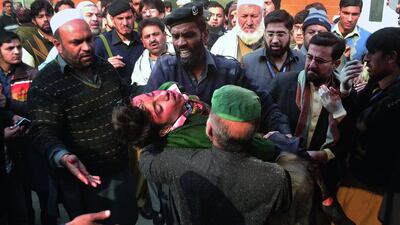Pakistan’s political stalemate ended in a Peshawar school, an outrage that will renew efforts against the Taliban in the courts and on the ground
Pakistan has endured another year of political instability, as bickering between politicians and the military clouded the national narrative on urgent issues, most notably a seven-year war with Taliban insurgents, and a decade of detente with India shattered by months of border skirmishes.
However, there were more encouraging signs. A consensus was reached between key political protagonists – army chief of staff General Raheel Sharif, prime minister Nawaz Sharif, and Imran Khan, the firebrand opposition leader. In turn, that will cement agreement on Pakistan’s national priorities in the next 12 months.
See all our Year in Review coverage
In the aftermath of the horrific Taliban attack on a Peshawar school on December 16, the war on terror now sits firmly at the top of Pakistan's list of priorities. In 2015, the military will retake the last tribal area strongholds of the Pakistani Taliban, forcing the exit of remaining foreign militant groups. The border with Afghanistan will be secured, with ongoing support of US intelligence assets based there, including CIA drones deployed to eliminate Pakistani and other militant insurgents on either side of the Durand Line.
The dramatic warming of relations with Kabul, following Hamid Karzai’s exit from power in September, may result in an Afghan Taliban agreement, at Pakistan’s urging, to participate in China-hosted peace talks with the Afghan government.
The Pakistani government and opposition look set to collaborate to provide legislative support for a nationwide crackdown against the militants, several thousand of whom have been apprehended in a massive counter-intelligence operation, launched in parallel to the military's decisive June offensive in tribal areas. Militants will be tried in courts specially empowered to pass summary sentences, and the government will quickly carry out death sentences passed against them, and in large numbers.
By working together on national security issues, it is possible that relations between prime minister Sharif and his nemesis, Imran Khan, will improve. Since August, Khan has mounted a campaign to publicise his unsubstantiated allegations that the May 2013 general election, which brought Sharif to power, was massively rigged. Sharif's government almost fell following violent protests in Islamabad, and survived only because of a backlash of support from parliament. Khan has called off a renewed wave of protests after the Peshawar school attack, but he will press demands for a judicial investigation of those polls and continue to agitate for fresh elections.

